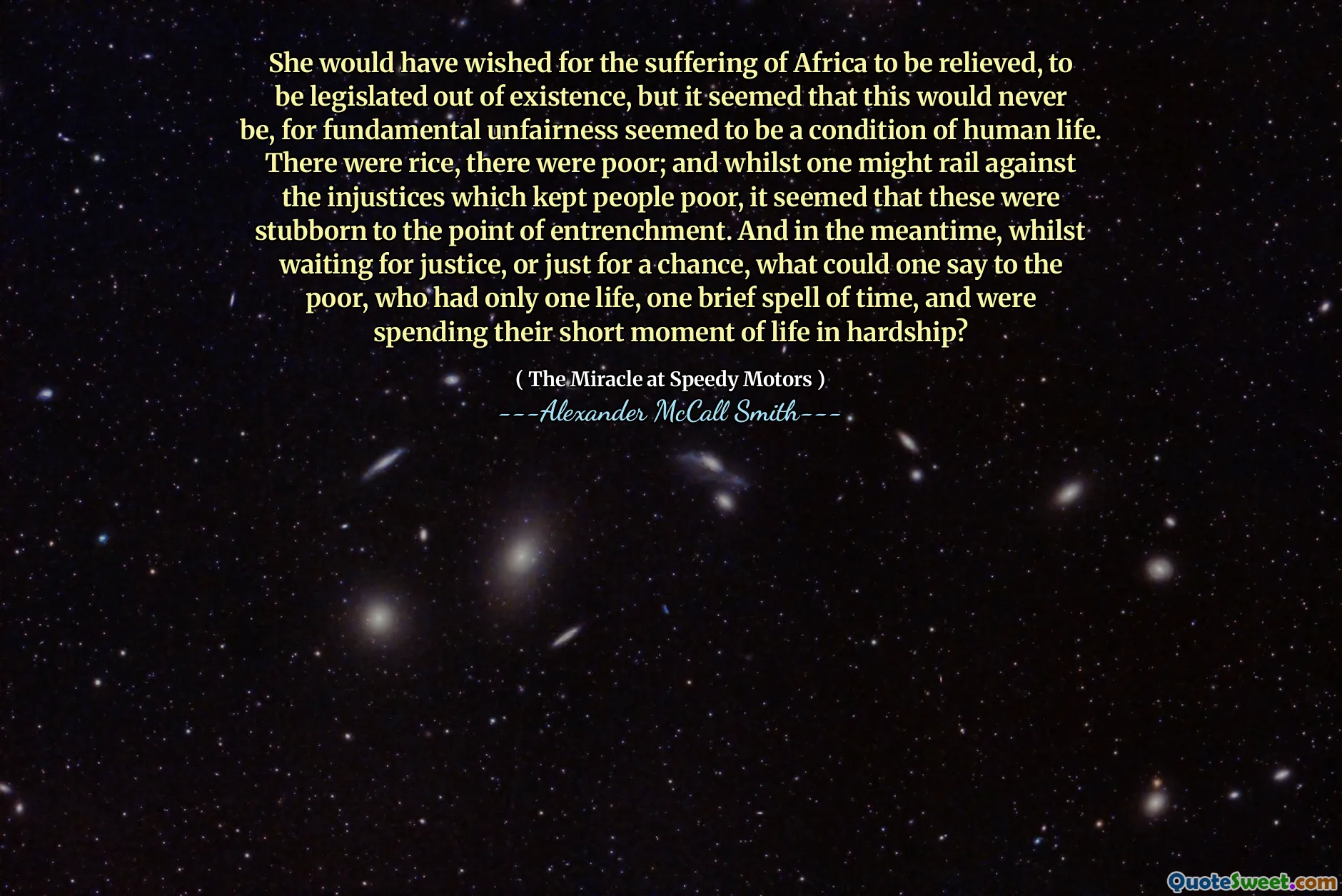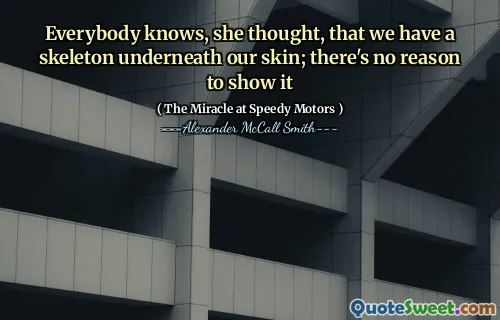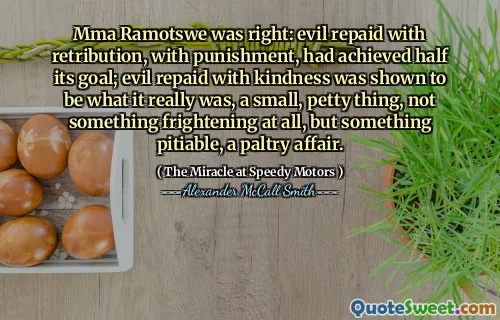
She would have wished for the suffering of Africa to be relieved, to be legislated out of existence, but it seemed that this would never be, for fundamental unfairness seemed to be a condition of human life. There were rice, there were poor; and whilst one might rail against the injustices which kept people poor, it seemed that these were stubborn to the point of entrenchment. And in the meantime, whilst waiting for justice, or just for a chance, what could one say to the poor, who had only one life, one brief spell of time, and were spending their short moment of life in hardship?
The author reflects on the persistent suffering in Africa, expressing a wish for the injustices to be legislated out of existence. However, he acknowledges that such fundamental unfairness appears to be an enduring aspect of human existence. Despite efforts to combat these inequalities, they remain entrenched, highlighting a grim reality that society must face.
Amidst this struggle, the author contemplates the plight of the impoverished, who endure hardship throughout their fleeting lives. He raises concerns about what can be said or done to comfort those living in poverty while they wait for justice or a better opportunity, emphasizing the urgency of their situation and the limited time they have to experience life beyond suffering.











